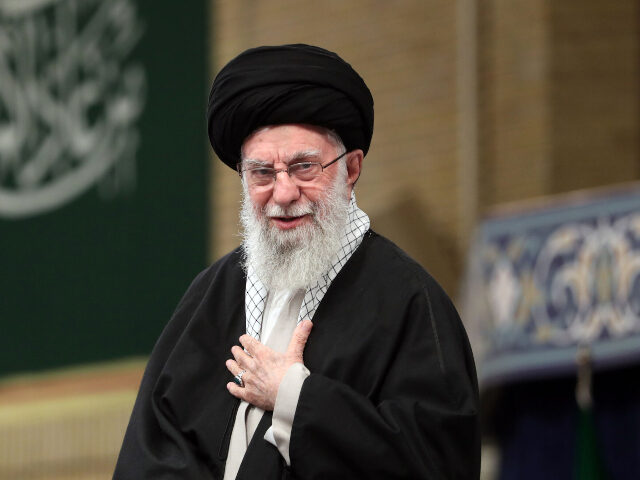Iran’s Supreme Leader Ayatollah Ali Khamenei claimed on Wednesday that Tehran’s “Axis of Resistance” was only made stronger by the fall of Bashar Assad, the Syrian dictator who was one of Iran’s top clients and vassals before he was overthrown by a lightning-fast jihadi insurgency last week.
Iran invested a huge amount of money and military force to keep Assad in power through a decade of civil war, but Khamenei insisted the demise of the Syrian regime at the hands of an al-Qaeda offshoot – militant Sunni Islamists who have no love for the Shiite superpower of Iran – was not a major calamity. In fact, Khamenei said Iran was better off without Assad.
“This is what the resistance is, this is what the resistance front is. The more you push, the stronger it becomes; the more you commit crimes, the more motivated it becomes. The more you fight with them, the more widespread it will be, and I tell you, by the Divine Power, the domain of resistance will cover the entire region more than before,” the elderly ayatollah ranted during a speech in Tehran.
“The resistance front is not a piece of hardware that breaks or collapses or is destroyed. Resistance is a faith, it is a thought, it is a heartfelt and definite decision. Resistance is a school; it is a school of belief. What is the faith of a group of people does not become weak, but becomes stronger with pressure,” he said.
Khamenei lashed out at “ignorant analysts” who said the fall of Assad would weaken Iran and its “resistance” network.
“I say that by God’s will and power and with the permission of God Almighty, Iran is strong and powerful and will only grow more powerful,” he railed.
Like other Iranian officials, Khamenei fumbled to explain why Iran did not protect Assad from the swift rebel onslaught, the way Iran and Russia protected him during the decade-long Syrian civil war. The ayatollah settled on claiming that Assad’s overthrow was a plot orchestrated by the United States and Israel, who used their fiendish powers to prevent the mighty Iranian military from riding to the rescue in Damascus.
“There should be no doubt that what happened in Syria was plotted in the command rooms of the United States and Israel. We have evidence for this,” Khamenei claimed.
“One of the neighboring countries of Syria also played a role, but the primary planners are the U.S. and the Zionist regime,” he added. That unnamed neighbor would almost certainly be Turkey, which occupies part of Syria with the help of local militia allies.
“We were ready even under the difficult circumstances. They came to me and said they had prepared all the means needed for the Syrians and were ready to go. But the skies were closed, the land was closed. The Zionist regime and the U.S. closed both the skies of Syria and the land routes. It was not possible,” he grumbled.
Khamenei laid much of the blame on Syria’s military, which melted away before the rebel onslaught. He accused the Syrians of allowing the U.S. and Israel to thwart Iran’s efforts to thwart the rebel advance and sniffed that mighty Iran might just decide to help its Lebanese client Hezbollah fight Israel instead, because Hezbollah is more courageous than “an army that cannot endure and flees.”
In fairness to the Ayatollah, Hezbollah has been doing a lot more dying than fleeing lately. Khamenei admitted Israel’s thrashing of Iran’s terrorist proxy in Lebanon has been a “calamity,” but then fantasized that Hezbollah grew even more powerful despite its losses, intimidating the Israelis so much that they accepted a ceasefire proposal.
“Hezbollah lost someone like Sayyed Hassan Nasrallah, was this a small thing? But Hezbollah’s attacks and power of its strong fist became more intense than before. The enemy also understood this and accepted,” he said, referring to Hezbollah’s longtime dictator Hassan Nasrallah, who was eliminated by an Israeli airstrike in September.
Khamenei reasonably observed that Syria’s many feuding factions could turn against each other, but then bizarrely predicted young Syrians would evict all occupying forces and restore Iran’s influence.
“Each of these attackers has their own agenda and their goals are different. Some of them are seeking to seize land in the north of Syria or in the south. The U.S. is looking to strengthen its foothold in the region,” he said.
“But time will show that, God willing, none of them will achieve their goals. The occupied areas of Syria will be liberated by the zealous Syrian youth,” he predicted. “Do not doubt that this will happen.”

COMMENTS
Please let us know if you're having issues with commenting.